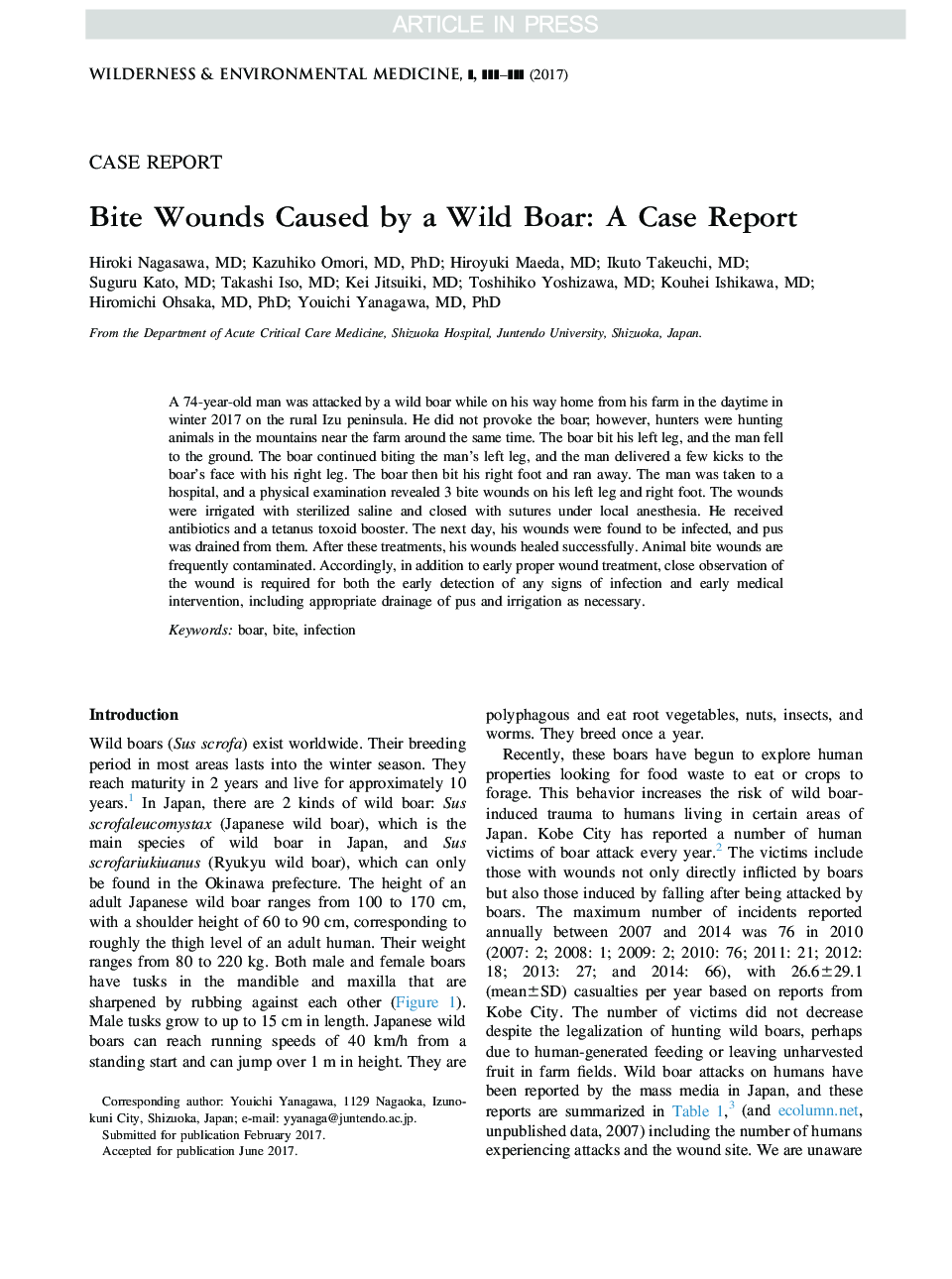| Article ID | Journal | Published Year | Pages | File Type |
|---|---|---|---|---|
| 8558015 | Wilderness & Environmental Medicine | 2017 | 5 Pages |
Abstract
A 74-year-old man was attacked by a wild boar while on his way home from his farm in the daytime in winter 2017 on the rural Izu peninsula. He did not provoke the boar; however, hunters were hunting animals in the mountains near the farm around the same time. The boar bit his left leg, and the man fell to the ground. The boar continued biting the man's left leg, and the man delivered a few kicks to the boar's face with his right leg. The boar then bit his right foot and ran away. The man was taken to a hospital, and a physical examination revealed 3 bite wounds on his left leg and right foot. The wounds were irrigated with sterilized saline and closed with sutures under local anesthesia. He received antibiotics and a tetanus toxoid booster. The next day, his wounds were found to be infected, and pus was drained from them. After these treatments, his wounds healed successfully. Animal bite wounds are frequently contaminated. Accordingly, in addition to early proper wound treatment, close observation of the wound is required for both the early detection of any signs of infection and early medical intervention, including appropriate drainage of pus and irrigation as necessary.
Related Topics
Health Sciences
Medicine and Dentistry
Emergency Medicine
Authors
Hiroki MD, Kazuhiko MD, PhD, Hiroyuki MD, Ikuto MD, Suguru MD, Takashi MD, Kei MD, Toshihiko MD, Kouhei MD, Hiromichi MD, PhD, Youichi MD, PhD,
